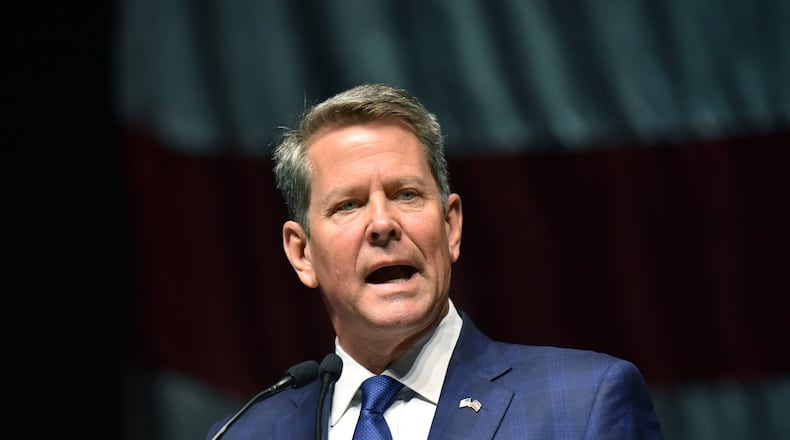Gov. Brian Kemp said Monday that Georgia has created a “rural strike team” to help bring new business to struggling parts of the state that often go overlooked.
The Republican told The Atlanta Journal-Constitution that the new team would focus on raising the visibility of potential job sites outside metro Atlanta and help rural counties band together to market mega-tracts for larger industries.
“This team will help us strategize and put deals together,” Kemp said in the interview. “It’s time to stop talking about this and get to work, and these will be professional deal-makers that can get things done.”
The strike force, which Kemp will formally unveil Thursday at a stop in Swainsboro, will partner with a half-dozen state departments and higher education agencies to identify potential project locations and market them to specific industries.
Kemp said he was fulfilling a promise he made on the campaign trail to strengthen the state's sputtering rural economy that also included improving internet access, reducing regulations and building more inland ports and other infrastructure.
“I’ve been to all these counties. I’ve been involved in businesses in rural communities. I have a different perspective in some ways,” said Kemp, a former secretary of state and Athens businessman who won a narrow race for governor fueled by huge support from rural areas.
“It’s the area that needs the help. Our focus won’t shift off the metro Atlanta area. But we need a new focus on other parts of the state. It’s not to say there wasn’t a focus before, but it needs to be tweaked.”
Kemp is launching the initiative as more sweeping plans to aid rural Georgia stall in the Legislature. Efforts to finance broadband connections, expand rural transit and give tax incentives to professionals to move to rural towns have failed to gain traction the last few years.
Some scaled-back measures have become law, including proposals that allow local electricity cooperatives to sell online services, clear the way for "micro-hospitals" and provide new tax credits for short-line railroads that could benefit sparsely-populated areas.
Meanwhile, rural Georgia's struggles are mounting. More than one-third of Georgia's small towns lost population over the past year, according to new estimates from the U.S. Census bureau, while Atlanta and other large cities have grown bigger.
And the Georgia Chamber of Commerce estimates that 74 counties will either lose population or stall at zero percent growth by 2030.
Kemp said the state economic development department will form the strike team by "retooling and refocusing" existing staffers, though it wasn't immediately clear how large the team would be. The staffers will also help counties piece together sprawling sites such as Stanton Springs, a mega-development of 1,600 acres that spans four counties.
“I’d love to see a big project go into a part of our state where no one thought it was possible to go, and have the effect that Kia had on West Point,” he said of the car manufacturer. “Or maybe it’s two or three different deals that aren’t as big as Kia but still have a huge impact.”
The governor, who recently ordered budget cuts to prepare for leaner economic times, said he was worried that talk of a souring fiscal climate could do lasting damage to Georgia’s psyche.
“I feel like some people are trying to talk ourselves into a recession,” he said. “We need to be talking about the great opportunities in rural Georgia and be proactive. We need to create our own luck.”
About the Author
Keep Reading
The Latest
Featured



